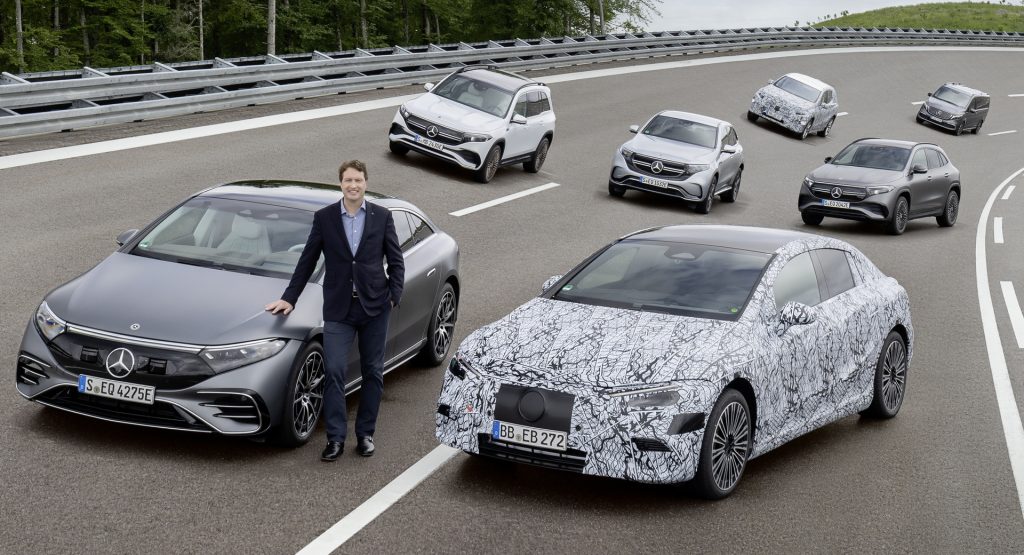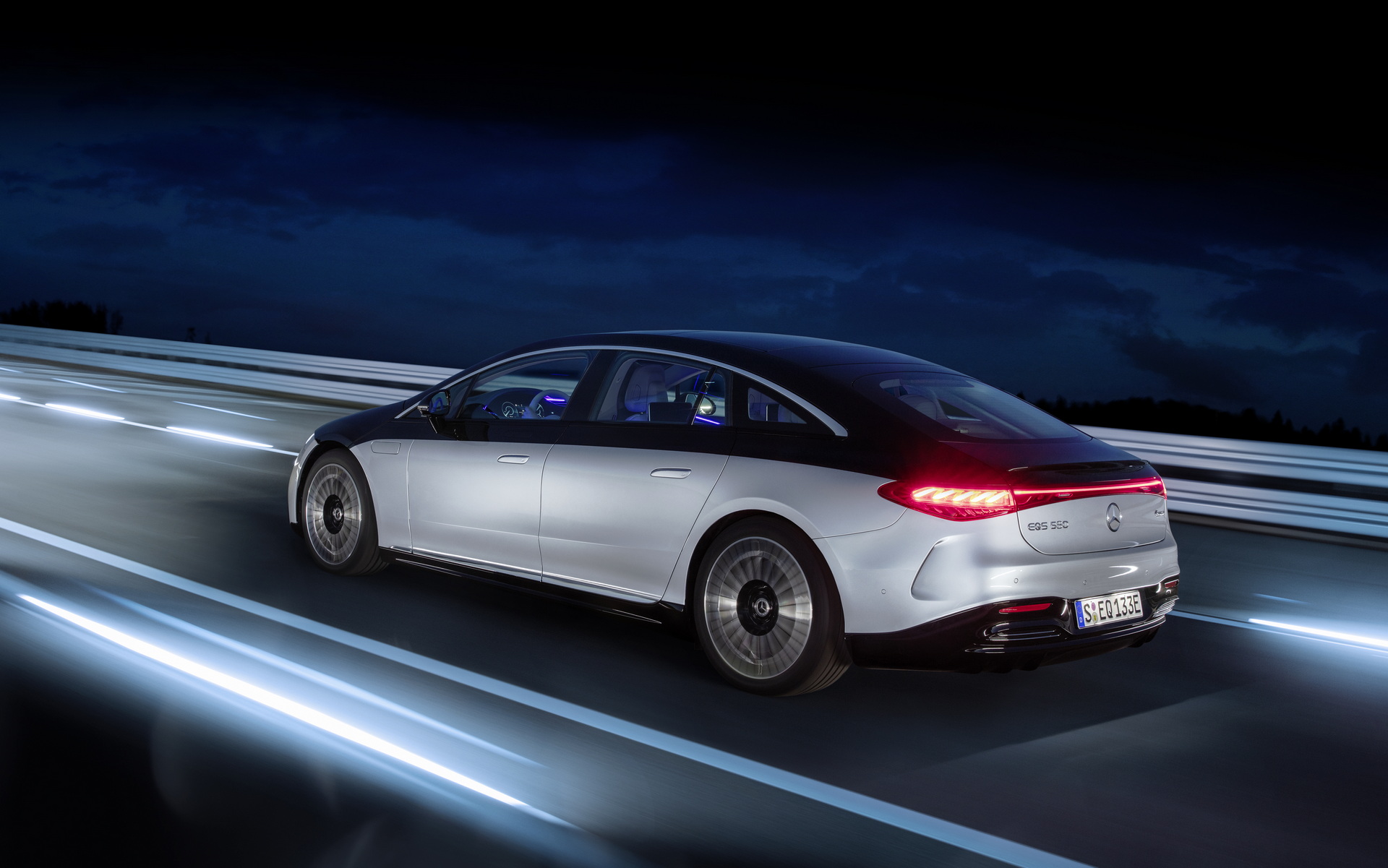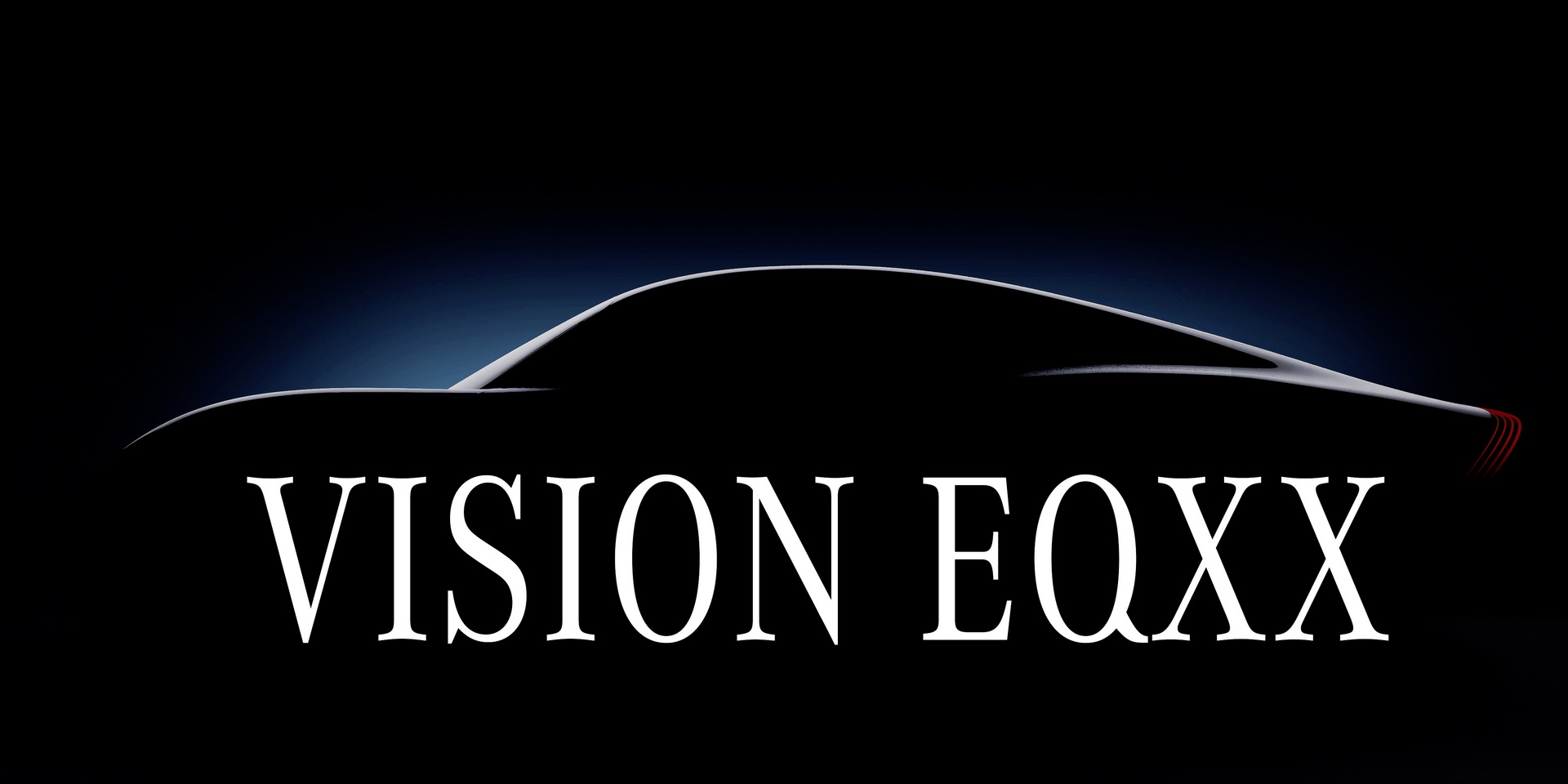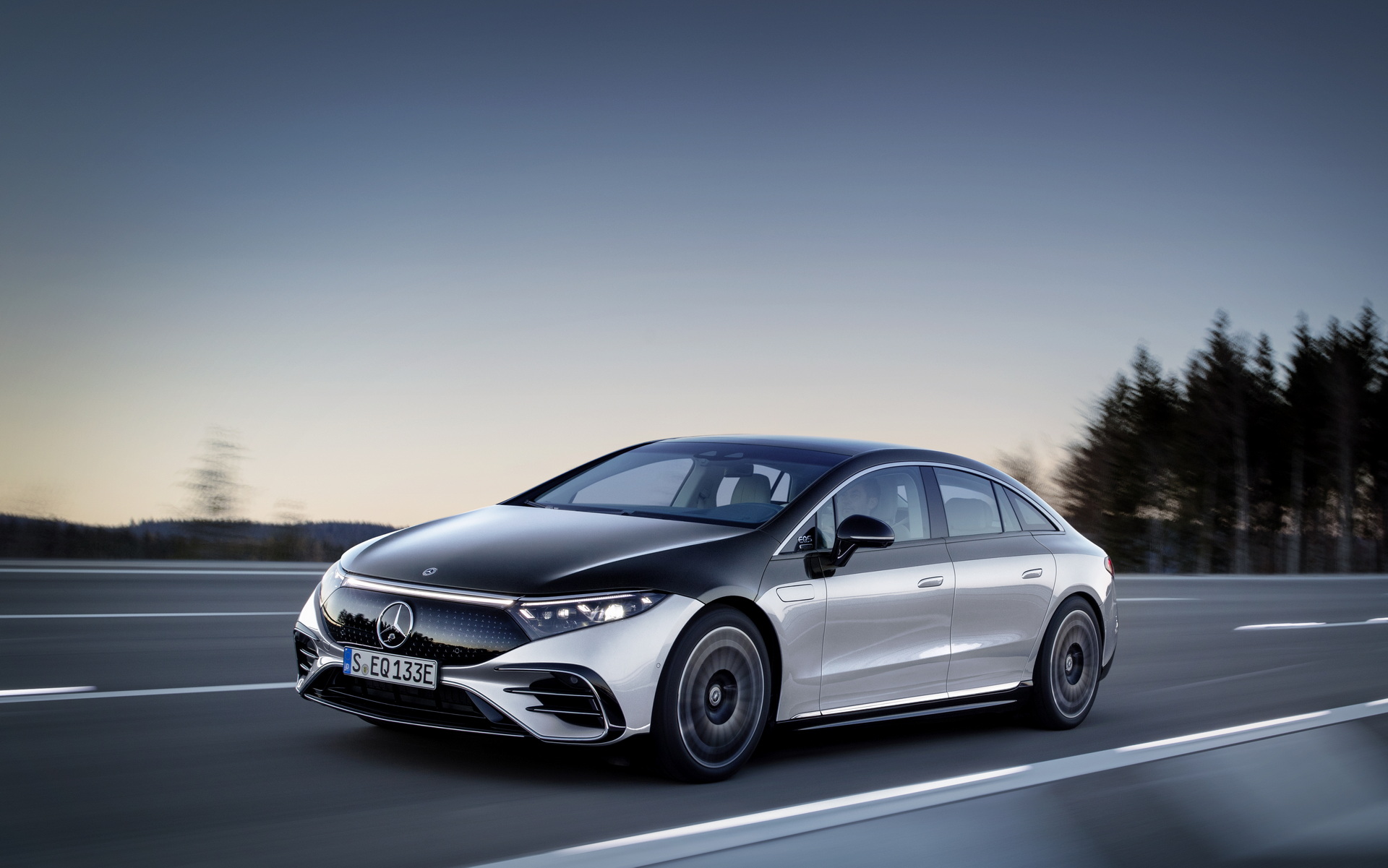Mercedes released its plan for the future today, and the brand plans to go all-electric in all markets that allow it in the near future.
That means unveiling three new EV-only architectures in 2025 that will allow the brand to offer an electric-only version of every new vehicle in its lineup.
“The EV shift is picking up speed – especially in the luxury segment, where Mercedes-Benz belongs,” said Ola Källenius, CEO of Daimler AG and Mercedes-Benz AG. “The tipping point is getting closer and we will be ready as markets switch to electric-only by the end of this decade.”
Read Also: Mercedes Teases The Vision EQXX Ahead Of Reveal
The company is allocating a total of €40 billion ($47.2 billion USD) between 2022 and 2030 in investments in electric vehicle R&D. Mercedes expects this investment to move the tipping point for EV adoption forward.
The first platform, MB.EA is designed for Mercedes‘ passenger vehicles and will cover all medium to large size cars, the company says. Scalable and modular, it will form the backbone of the company’s future EV portfolio.
The second platform will likely perk the ears of the enthusiasts in the crowd. The AMG.EA platform is dedicated to performance electric vehicles and is being aimed at Mercedes-AMG customers, as the name would suggest.
Finally, you might also be able to guess what the VAN.EA platform is for from the name. Intended for vans and light commercial vehicles, Mercedes expects it to contribute to making cities cleaner in the near future.
Already, Mercedes is planning on building an EV with a real-world range of 1,000 km (621 miles) and is targeting a single-digit kWh per 100 KM efficiency figure. For reference, the Tesla Model 3 gets a 14.9 kWh per 100 km rating. The team working on this project includes experts from Mercedes F1’s Performance Powertrain Division.
In order to power all of these EV goals, Mercedes predicts it will need more than 200 Gigawatt hours-worth of batteries. It will therefore build eight Gigafactories around the world with its partners in addition to the nine plants it has previously dedicated to battery production.
The company says it’s already working with partners on the next generation of batteries, with R&D going into cells with higher energy densities and with solid-state batteries on the horizon. Higher-efficiency electric drivetrains are also on their way thanks to Mercedes’ purchase of YASA, a UK specialist in high-performance axial flux motors.
And through all of this, Mercedes says it will hang on to its profit plans that were set out in 2020 as well as keeping the majority of its workforce. Although some people will be offered early retirement plans, the company plans to re-skill the majority of its employees to ensure that the transition doesn’t mean the decimation of its workforce.
Before it can do all of that, though, Mercedes says it will have an EV in every one of its segments by 2022.
“Our main duty in this transformation is to convince customers to make the switch with compelling products. For Mercedes-Benz, the trailblazing EQS flagship is only the beginning of this new era,” Källenius said.







